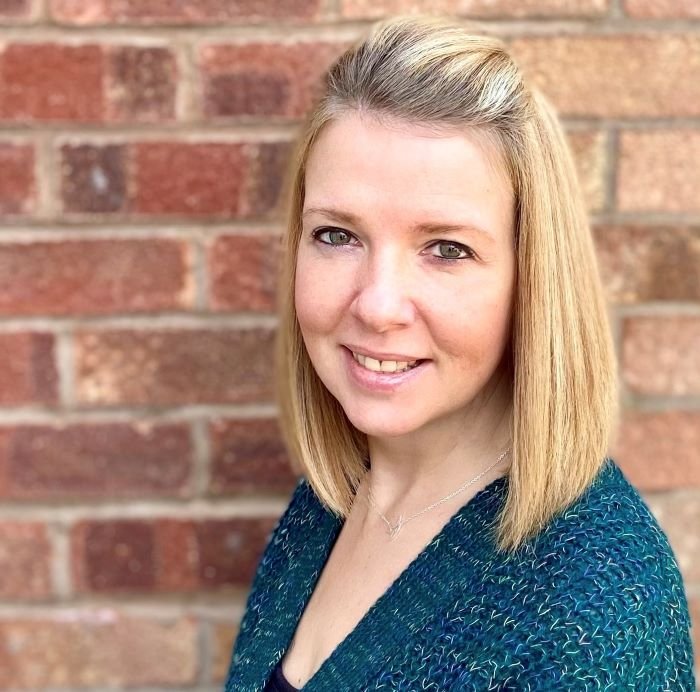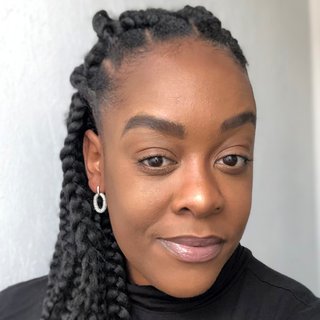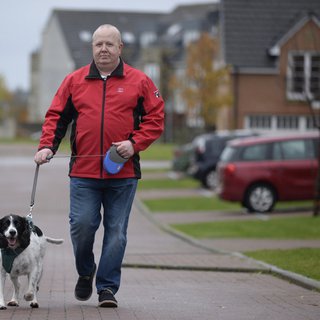Coping with a sudden diagnosis of AML
Marie was diagnosed after antibiotics for a mouth infection weren’t effective. After a trip to A&E, the doctors ran further tests to find AML. Here she tells her diagnosis story and how she coped with such a life-changing event.
I had felt run down for a while, and for about six months before my diagnosis, I was getting all kinds of different infections. After antibiotics for a mouth infection stopped working, I had an episode of short-term memory loss and went to A&E, where I was told it was probably a side effect of the antibiotics.
I went home but started to experience other symptoms. I had no idea what was happening to me. I had the shakes and flashing headaches, so I went back to hospital. This time they did tests and asked a lot of questions. When I was put in a side room, I started to panic. Hours later, after bloods and a biopsy, I was told I had cancer.
I was so shocked, it didn’t seem real
I felt just complete shock at the diagnosis. I think we often go through life thinking we are invincible and that the things that happen to other people will never happen to us. I was so full of shock that I felt like I was watching a movie and that this was all happening to someone else.
I think I buried my head in the sand at first. I wanted to be strong for my family and in my head, I just thought I had something like the flu. The reality hadn’t yet hit home and all I was focusing on was how it was going to be treated. I wanted to know the practical side of getting from A (being poorly) to B (being well).
I didn’t want to read anything about acute myeloid leukaemia (AML) in the first few days and I wanted my family to stay positive when they came to visit. My initial perspective was that I’m going to get better, and I don’t need people coming to visit me and crying.
I think I hadn’t really registered what I was going through. It probably took several weeks to sink in and for me to process what was happening. At the time of diagnosis, I could only deal with what was happening on a day-to-day basis and that’s how I coped. I just focused on getting through the next 24 hours.
However you are feeling is normal
No matter how strong a person is, no matter how extroverted, as soon as you get into that hospital bed, it’s so easy to feel vulnerable.
I remember my auntie coming into hospital to visit me when I was having a dark day. I burst into tears whilst she was there and she said, “thank God for that, you’re human!” I’d been putting on a smile every time I had a visitor, and she let me know it was okay to feel low sometimes too.
AML is a complete and utter rollercoaster of emotions, and while your mindset is so important to how you cope, it’s okay to feel down sometimes too, as long as you don’t stay there for long periods of time. Talking to other patients helps normalise your feelings, because nobody really knows what you’re going through other than those who have been through it too.
It's great to surround yourself with positive stories of other patients’ experiences, but also give yourself a break. Allow yourself to feel every emotion you’re feeling, it’s all valid. There is no magic wand, and everyone will deal with AML in a different way, but all ways are okay.
There’s no handbook on how to deal with cancer treatment, but what there is, is a lot of support, a lot of tips from other patients, and a lot of guidance. Take it slowly and focus on the short term – it’s all about getting through one day at a time.
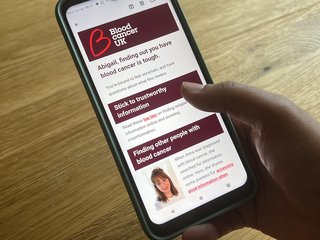
Get a weekly support email from us
We'll send you clear and simple information, practical tips, and advice from other people with blood cancer, to help during the first few weeks and months after diagnosis.
Work out what you can control
The sudden diagnosis and start of treatment can make you feel so out of control, and I do think you have to process your emotions, but it’s good to balance that with practical actions to make you feel more in control of your AML journey. For instance, I found it exhausting getting daily messages from everyone I know asking for updates. I’d have to repeat myself again and again and I found it psychologically draining. So I nominated a family member to keep everyone updated.
Organising a timetable of visitors can also help, and spending time planning questions for your consultant. These are all small practicalities that can help your mind feel more at peace with things.
There are so many things you can’t control but one thing I could control was how I was thinking about things. Rather than look up things like death rates, I’d look up success stories online. I had the mentality that if they could get through this, then there’s hope for me as well.
Listening to your body
I wish I’d known to listen to my body and to take note of my symptoms. I think it is ingrained in us to push things aside. Before I was diagnosed, I had experienced so many infections that I even said to my colleague ‘my immune system is shot to pieces’. Ironically, I didn’t know at the time that my immune system literally was damaged. I just put my continuous infections down to my workload.
Even when I was at home in between treatments, if I was getting side effects or feeling unwell, I’d tell myself I was okay because I didn’t want to go back into hospital. I realise now no symptom should be ignored and no question for your doctor is silly. If you’re not feeling well for any reason, it’s so important to tell your medical team.
Important: If you get any symptoms of an infection when you’re at home (like a temperature or fever) you must tell your medical team straight away – infections can quickly become serious if you have blood cancer.
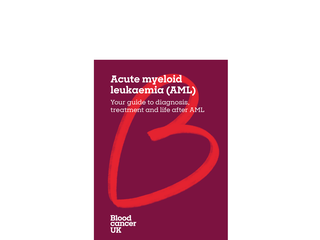
Order your free guide to AML
If you've been told you have AML, this booklet covers treatments, questions to ask your medical team, and real stories of people living with AML.

